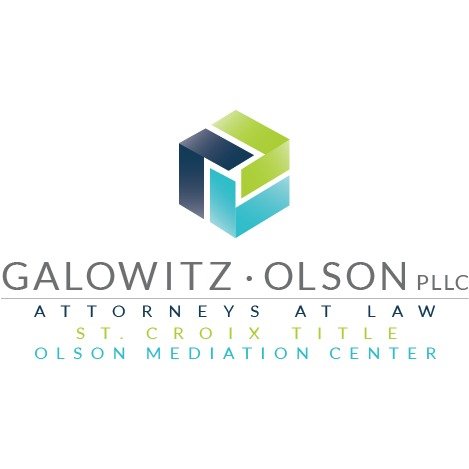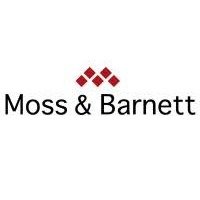Best Patent Lawyers in Minnesota
Share your needs with us, get contacted by law firms.
Free. Takes 2 min.
Or refine your search by selecting a city:
List of the best lawyers in Minnesota, United States
About Patent Law in Minnesota, United States
Patent law in Minnesota, United States, operates within the framework of federal law managed by the United States Patent and Trademark Office (USPTO). A patent grants inventors exclusive rights to make, use, sell, or import an invention for a limited time, typically 20 years from the filing date. The aim of patent law is to encourage innovation by allowing inventors to protect their ideas and inventions. While all patents are issued at the federal level, Minnesota is home to a thriving community of inventors, technology companies, research institutions, and legal professionals specializing in intellectual property.
Why You May Need a Lawyer
Securing and enforcing a patent can be complex and requires detailed knowledge of both the law and technology. People often seek legal assistance in the following situations:
- Filing a patent application for an invention or new process
- Conducting a patent search to ensure an idea is novel
- Responding to USPTO office actions or objections during the patent process
- Defending against accusations of patent infringement
- Enforcing your patent rights against others who might be using your invention without permission
- Negotiating and drafting patent licensing agreements
- Transferring ownership of patents during mergers, sales, or inheritance
- Assessing whether a product or process might infringe existing patents (freedom to operate)
- Litigating or defending a patent dispute in federal court
- Handling international patent protection concerns
Local Laws Overview
Patent law itself is governed by federal statutes, not state law. However, Minnesota has a notable presence in the area of patent law with a concentration of patent attorneys, law firms, and organizations supporting innovation. Minnesota-based federal courts, particularly the U.S. District Court for the District of Minnesota, regularly handle patent litigation cases. In addition, Minnesota’s robust innovation ecosystem-including research universities, medical device companies, and technology firms-means the state is highly active in patent filings, licensing, and enforcement. Understanding local business practices, industry standards, and the regional legal landscape can be advantageous when seeking or defending patents in Minnesota.
Frequently Asked Questions
What is a patent and what qualifies for patent protection?
A patent is a legal right granted for a new, useful, and non-obvious invention, which can be a product, process, machine, or a new composition of matter. Not all ideas qualify; to be patentable, an invention must meet specific criteria and be fully described in the application.
Do I need to work with a lawyer to file a patent application in Minnesota?
While you can file a patent application yourself (pro se), working with a registered patent attorney can improve your chances by ensuring your filing meets all legal and technical requirements. Mistakes in the application process can lead to delays, rejections, or weakened patent protection.
Where are patent cases heard in Minnesota?
Patent infringement and related disputes are heard in federal court, specifically the United States District Court for the District of Minnesota, as federal law governs patents.
How long does it take to obtain a patent?
The time frame varies, but it typically takes from 18 months to several years from the initial filing to final approval, depending on the complexity of the invention and the USPTO’s workload.
What types of inventions can I patent?
You can patent utility inventions (machines, processes, compositions of matter), design inventions (the ornamental design of an article), and plant inventions (new plant varieties). Abstract ideas, natural phenomena, and laws of nature are not patentable.
Can I protect my invention outside the United States?
Yes, but US patents only protect your invention within the United States. Patents in other countries require separate applications, although international treaties like the Patent Cooperation Treaty (PCT) can help streamline this process.
What should I do if someone is infringing my patent?
You should consult a patent attorney right away. The attorney can help you assess the infringement, communicate with the alleged infringer, and consider legal action if necessary, including filing a lawsuit in federal court.
Can I sell or license my patent in Minnesota?
Yes, patents are personal property. You can license your patent to others or sell your rights entirely. An attorney can assist with drafting and reviewing license or assignment agreements to protect your interests.
What is a prior art search and why is it important?
A prior art search investigates existing patents and publications to determine if your invention is novel. This step helps avoid investing time and money in inventions that may not be patentable and improves application quality.
How can universities or employers affect my patent rights in Minnesota?
If you invent something as part of your employment or academic research, your rights may be subject to employment contracts, university policies, or federal law, such as the Bayh-Dole Act for federally funded research. Legal advice is essential to clarify ownership and rights.
Additional Resources
If you are seeking more information or assistance regarding patents in Minnesota, consider these resources:
- United States Patent and Trademark Office (USPTO)
- Minnesota Intellectual Property Law Association (MIPLA)
- Legal clinics at local Minnesota law schools
- Small Business Development Centers (SBDC) in Minnesota
- U.S. District Court for the District of Minnesota
- Minnesota Bar Association’s Intellectual Property Section
- Patent and Trademark Resource Centers at Minnesota libraries (PTRC)
Next Steps
If you need legal assistance with a patent issue in Minnesota, start by identifying your specific needs, such as filing an application, defending your patent rights, or addressing an infringement concern. Gather all documentation related to your invention and any correspondence with the USPTO or other parties. Next, consult with a registered patent attorney or agent who has experience with your type of invention or industry. Many attorneys offer an initial consultation to discuss your options. Consider reaching out to local legal clinics or professional organizations for referrals if cost is a concern. Acting promptly and seeking proper legal guidance can help safeguard your intellectual property and maximize the value of your innovation.
Lawzana helps you find the best lawyers and law firms in Minnesota through a curated and pre-screened list of qualified legal professionals. Our platform offers rankings and detailed profiles of attorneys and law firms, allowing you to compare based on practice areas, including Patent, experience, and client feedback.
Each profile includes a description of the firm's areas of practice, client reviews, team members and partners, year of establishment, spoken languages, office locations, contact information, social media presence, and any published articles or resources. Most firms on our platform speak English and are experienced in both local and international legal matters.
Get a quote from top-rated law firms in Minnesota, United States — quickly, securely, and without unnecessary hassle.
Disclaimer:
The information provided on this page is for general informational purposes only and does not constitute legal advice. While we strive to ensure the accuracy and relevance of the content, legal information may change over time, and interpretations of the law can vary. You should always consult with a qualified legal professional for advice specific to your situation.
We disclaim all liability for actions taken or not taken based on the content of this page. If you believe any information is incorrect or outdated, please contact us, and we will review and update it where appropriate.
Browse patent law firms by city in Minnesota
Refine your search by selecting a city.











